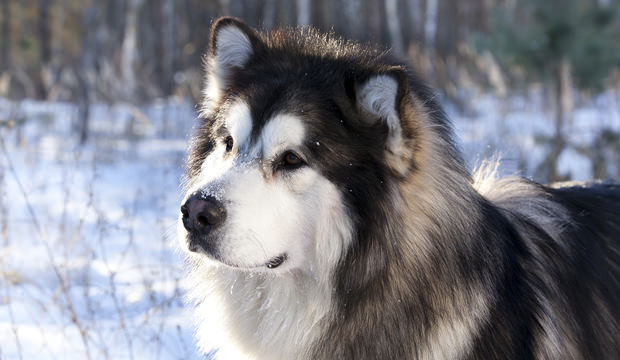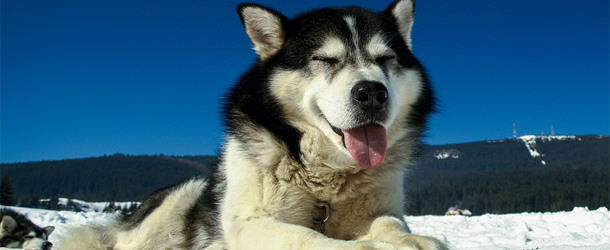
Malamute dogs are popular for many reasons, their beautiful appearance included. However, there are also many downsides to owning one of these demanding animals. In fact, many owners struggle so much with training and caring for their Malamute that they end up having to give the dog away to a shelter. In the right home, these animals can thrive, but they need owners who are prepared to learn how to handle them.
If you are going to keep one of these big dogs, then a fenced yard is essential to give enough space to roam around without risk of the dog getting out.
Malamutes are curious and restless, so they will often go wandering if provided with a means of escape. Neighbors tend not to enjoy this behavior, as an unaccompanied Malamute can look very intimidating.
Malamutes were originally bred to be working dogs by tribes in Alaska. As a result, these dogs are highly intelligent, very strong, and difficult to tire out. They need plenty of exercise every day to prevent them from becoming bored.
If you love going for long hikes, your Malamute will be an ideal companion, and can even carry supplies such as food and water for you if you fit him or her with a dog pack. Just don’t expect your pet to be happy with a quick stroll around the block.
Training is essential for Malamutes. The dog must learn to respect all members of the family and respond to basic commands. You also need to be able to firmly but calmly discipline your dog when it gets into the trash or steals human food from the kitchen, which Malamutes are prone to doing.
Of course, taking care of a Malamute isn’t all hassle and heartache. When properly cared for, these dogs can be extremely loving. Once you have established their place in the hierarchy of your household, they are generally friendly and amicable to all humans, although some retain a tendency to show aggression to smaller pets and wild animals. With a few exceptions, these dogs generally thrive best in homes without other pets.

You only have to look at a Malamute to see that their coats are absolutely beautiful, and many people would say that there is no better feeling in the world than hugging one of these furry friends. The downside is that these dogs inevitably shed a lot of hair.
Fortunately, most of the shedding occurs during a short period in the spring, so once you have made it through a couple of weeks of frequently vacuuming the house and brushing the dog daily to help remove the loose hair, then you should be in for a slightly easier time during the rest of the year.
A Malamute’s thick coat does bring some benefits. It effectively repels dirt, so your dog will stay surprisingly clean and smell-free. It also keeps the dog warm, so that most Malamutes will be comfortable being outdoors even during winter.
Although an occasional bath is essential to keeping your dog clean enough to hug, the Malamute does not require bathing as frequently as most other long-haired breeds. Like all dogs, Malamutes need to have their toenails clipped and their teeth cleaned regularly.
All pure-bred dogs have some health issues, although Malamutes get off relatively lightly on this count, as they are not particularly prone to ear or nose problems like some other breeds. The main issue that you should look out for is hip dysplasia, which is a developmental problem in the hips that can eventually lead to lameness.
Getting your pup from a registered breeder, or adopting an older dog from a shelter, reduces the risk of getting a pet that is affected with this crippling condition.
Before taking on the commitment of being a Malamute owner, you need to carefully consider all the potential pros and cons and decide whether this breed of dog is right for your household. Be prepared to invest a lot of time in training and exercising your dog, and you will be rewarded with a lot of love and loyalty.

We had an Alaskan Malamute about 10 years ago. Sam had originally been sent to Alaska from Minnesota to train as a sled dog. She did not perform and was returned to the breeder. When we visited the breeder, my son decided to select a dog that came to him first. 6 month old Sam showed up. We introduced a cat that my daughter wanted to Sam fully expecting some difficulty. Turned out Sam mothered the cat and they became fast friends. During the winter, Sam insisted to sleep outdoors. Sam would let the cat curl up to it and… Read more »
that is very sad hope you can find a new malamute i hope to get when when i grow up